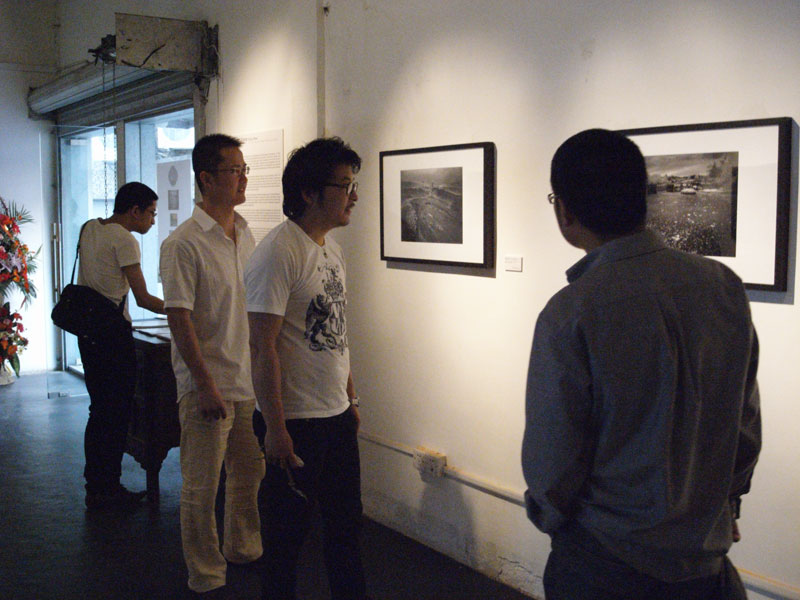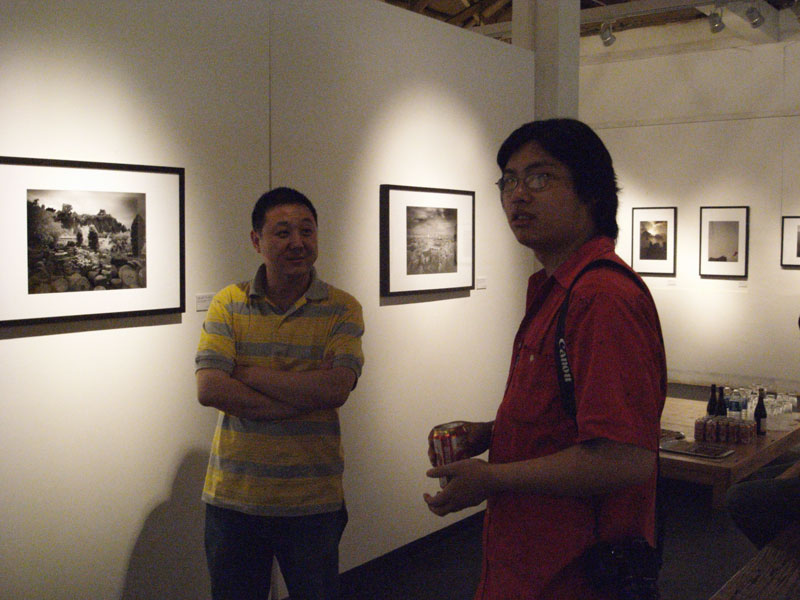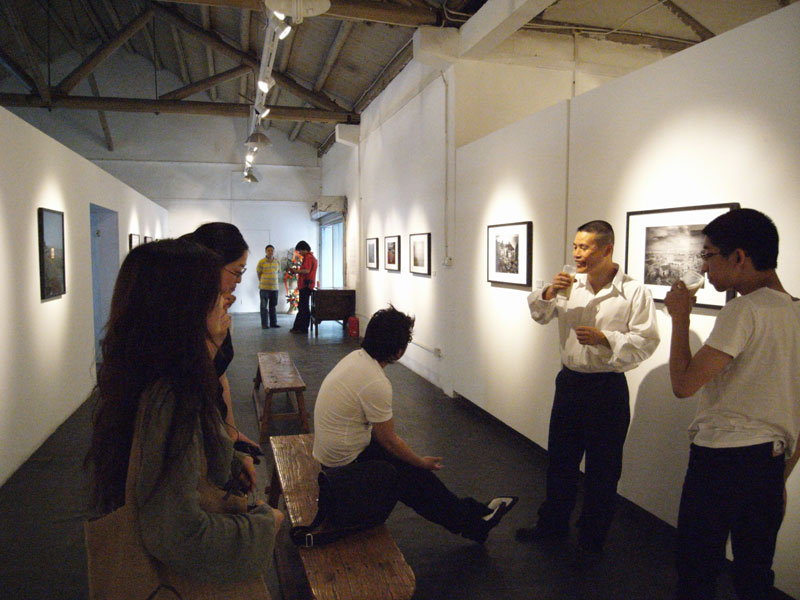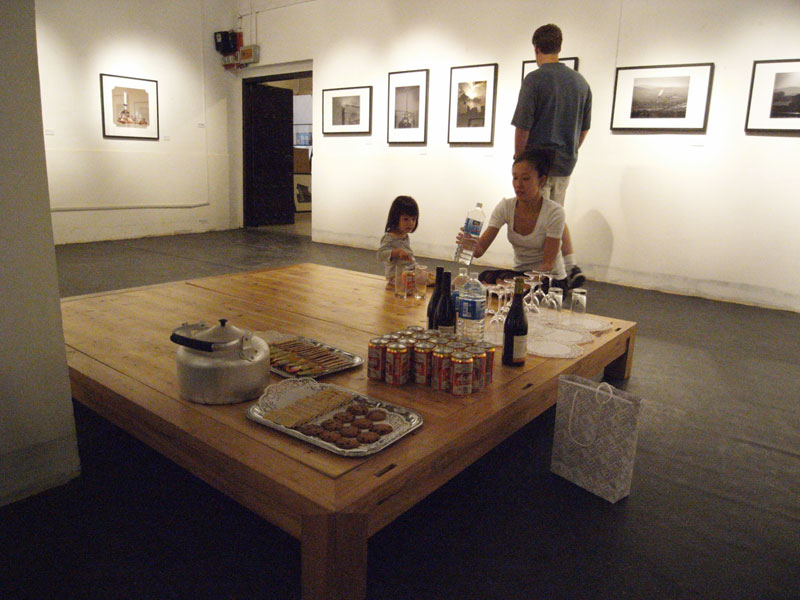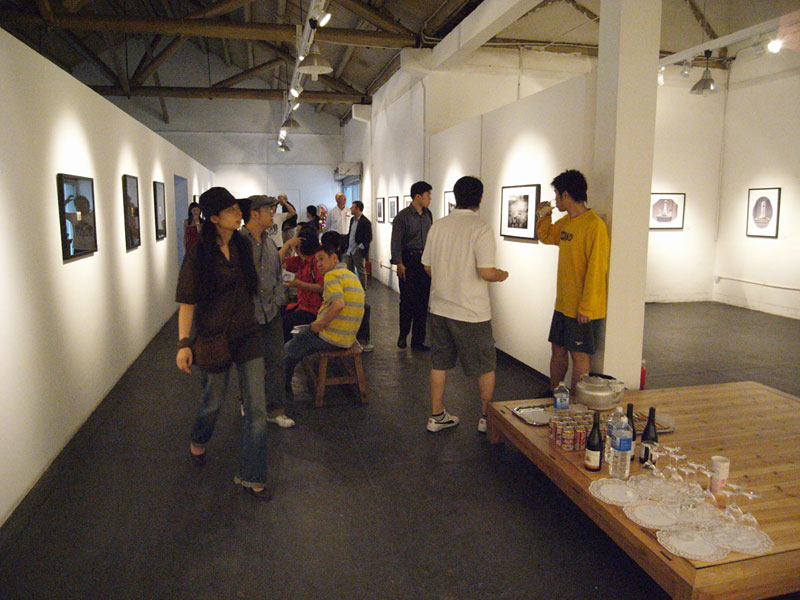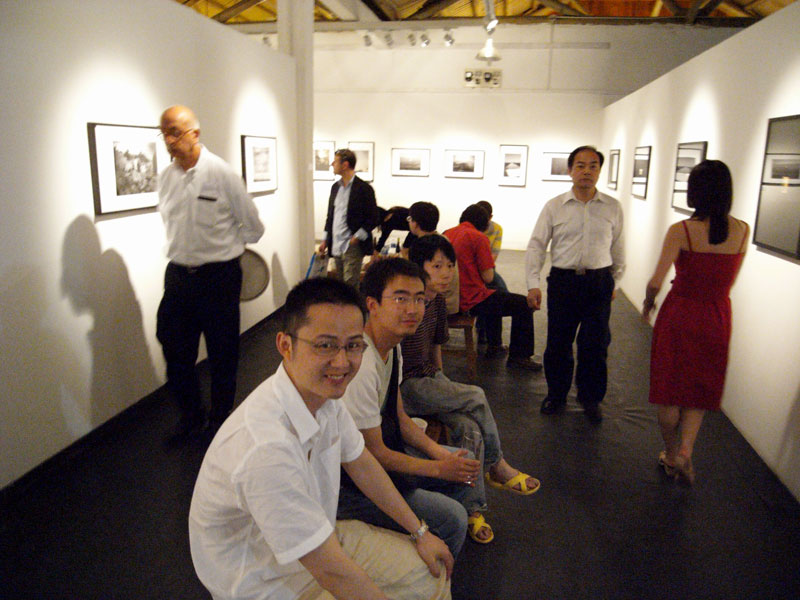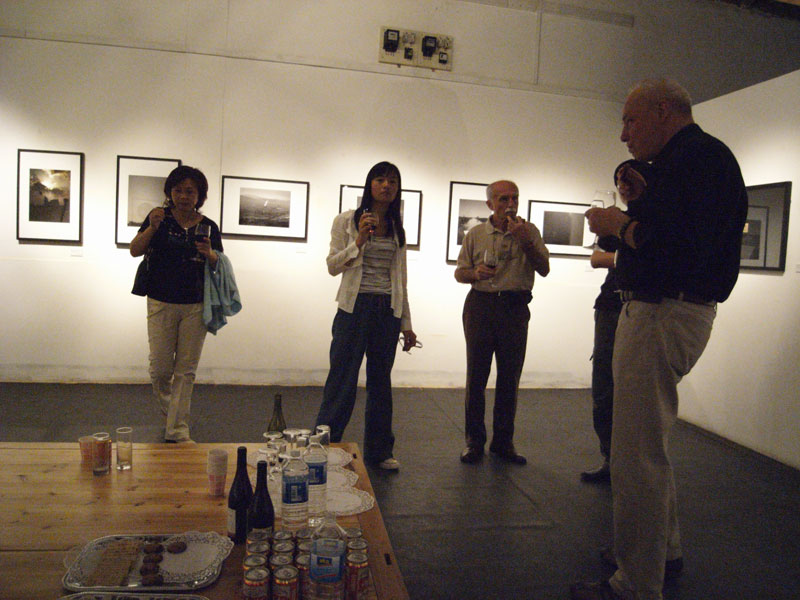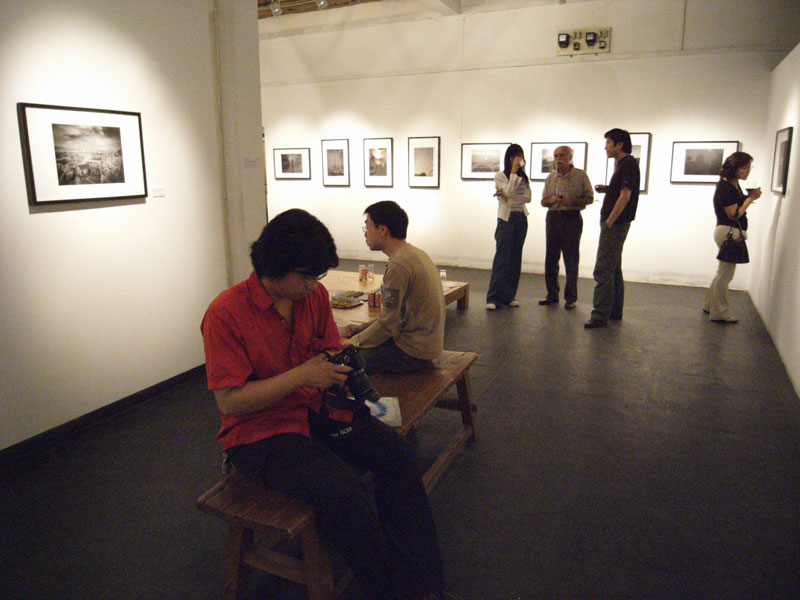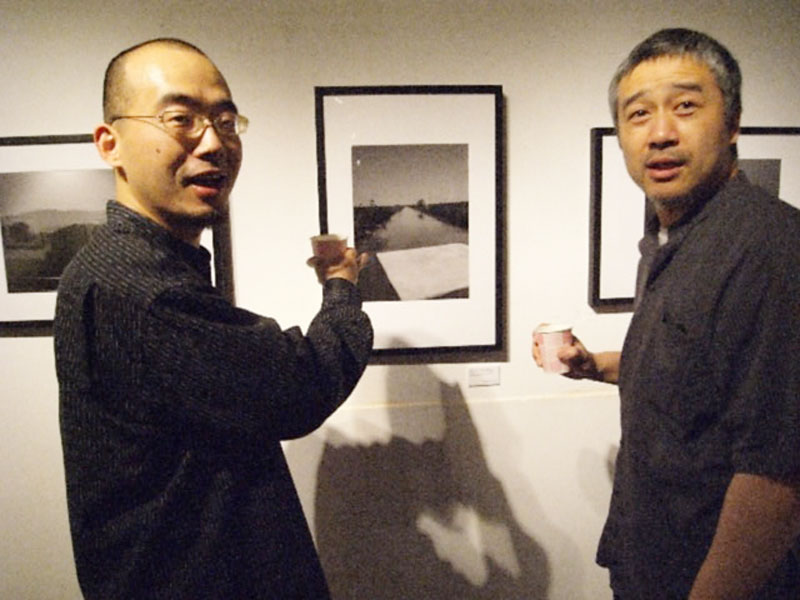Staged Scenes
by Wang Jun
The use of landscape has always been an important part of the development of photography. In China since the communist revolution it has been dissimilated into a special term: ‘Feng Guang’ scenery. Civic landscape has been excluded from the feng guang genre and the question of who shoots the photogrpahs became a non significant question for the viewer. Today the modern photographer lives in the cities and they should be representing the urban landscapeThese four photographers are exactly the artists who are using distinctive language and presenting distinctive scenes marked by there individual styles.
Zhou Qing’s works show us a supreme state of traditional Chinese fencing art philosophy, which is “no sword in hand, but a sword in heart”. Her emotions are totally unbridled within her works. Using her portable digital camera, she recorded the journey of her heart and traced out the home of her spirit. Her works are the inhabitation of poems, which incessantly deliver her desire of “living in other where”. Zhou did not catch the images into the viewfinder with her eyes, but with her distinct sharp intuition, therefore, those seized scenes are just the scenes of her innermost.
Using infrared photography, Wang Yuming’s works present those unseen scenes of human being as visional falsehood, just like the reproduction of the dreams. His scenes are always intentionally run away from the Temporality and meanwhile he tried his best to present the Faramita that the human beings cannot reach and see. With very strong negative effects, faintly, the world of a nightwalker emerged and the scenes behind the pictures are showing up.
Parks were almost the only place our urban residents could amuse themselves 30 years ago and before, which took too much happy time memories of that generation’s nonage and boyhood. But in Guo Peng’s parks, we can hardly feel those joy and happiness. The photographer pigmented his photos and made his works old in order to call “the untrue vision of past”, where a light sentiment fills in his fine handwork. Guo’s works are a representation of the faded memories of that generation and moreover, awake the slept memories with photograph.
Luo Junzhang’s experiments in photography uses the lens as a tool to express his conceptual understanding by transforming signature city sculptures and monuments into Chinese traditional miniature plates by using PhotoShop manipulation.This hybrid approach to making miniature landscapes provides an interpretation of the ancient Chinese art form of ‘Peng Jing’ literally translatred as plate + landscape. This offers the whole image an extreme conflict yet reasonable juxtaposition, in order to metaphor cleverly the strange phenomenon of city cultural developments in China today.
Susan Sontag once wrote in her classic On Photography: “photographs alter and enlarge our notions of what is worth looking at and what we have a right to observe”. Right, worth looking at and what we have a right to observe is not only a key for the photographers, but also a challenge about aesthetic judgment for every viewer.

